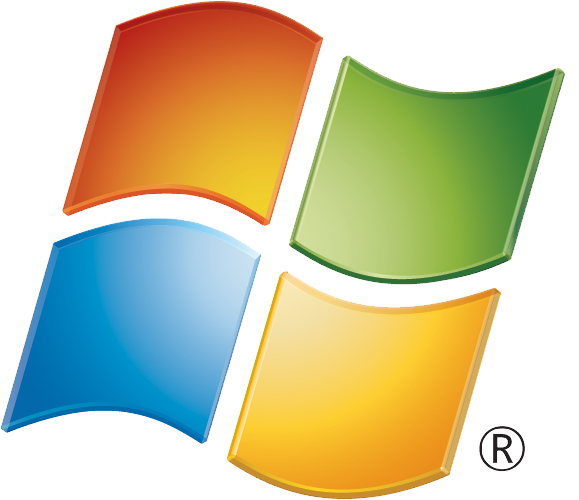Windows HPC Server 2008 R2 Hits Second Beta
Could Windows do battle with Linux in the high performance category, and win?
Microsoft is pushing itself into the High Performance Computing. This week the company reached a milestone with its release of a second beta of Windows HPC Server 2008 R2.
In the TechNet blog, Ryan Waite, Product Unit Manager, Microsoft High Performance Computing Group listed the following new features and developments:
· Scalability and performance. We’ve continued to improve scalability, regularly testing on the 1,000 node cluster in Microsoft Research—we plan to pursue Top500 runs that prove much greater scalability. We also know customers want to make use of spare processing cycles as part of their overall HPC infrastructures. Windows HPC Server 2008 R2 Beta 2 now integrates with workstations running Windows 7, enabling organizations to use them as cluster compute nodes.· Simplified parallelism. HPC starts with parallel code, so my team is particularly excited about next week’s Visual Studio 2010 launch. Windows HPC Server 2008 R2 empowers parallel development, providing a platform for traditional (batch-based) and service-oriented (interactive) HPC applications. And, Visual Studio 2010 helps developers create, debug, and trace HPC applications using already-familiar tools. · Excel integration and ease of use. Whenever we speak with scientists, engineers, and analysts about their HPC needs we hear how they rely on Microsoft Excel for computations and how they’d love to scale those computations to run in parallel on a cluster. We’ve responded with HPC Services for Excel 2010. Top systems integrators and consultants like Wipro, Infusion and Grid Dynamics are now ready to help customers deploy and take advantage of HPC Services for Excel 2010.· Interoperability options. We’ve heard from customers that “rip and replace” isn’t often a viable option for building out their clusters. So, we have started collaborating with industry-leading HPC management companies like Adaptive Computing, Clustercorp and Platform Computing to enable hybrid options where Windows HPC Server and Linux work together. Whether it’s a dual boot or dynamic cluster, hybrid options help organizations get more out of HPC investments and provide broader access to HPC resources.
Get Tom's Hardware's best news and in-depth reviews, straight to your inbox.
-
ivan_chess Sounds interesting but HPC OSs need to be really small. Compute nodes don't have hard drives so the OS must be sent over the network and stored entirely in the RAM. Feature filled Windows won't be small.Reply -
p05esto You have to give it to MS, they are really turnign up the heat the past few years. They were a little stale and comfortable, someone woke the sleeping giant.Reply -
Shadow703793 ReplyCould Windows do battle with Linux in the high performance category, and win?
Short answer: Nope
Linux currently dominates the HPC/Supercomputing market -
rbarone69 ivan_chessSounds interesting but HPC OSs need to be really small.Reply
To start I have to disclaim that I currently harness one of man's greatest known reserves of HPC ignorance...
MS has done a pretty good job on the Server 2008 series to strip it down to a very small featureless footprint. I'd bet they have taken this a step further for this particular application.
-
ivan_chess rbarone69To start I have to disclaim that I currently harness one of man's greatest known reserves of HPC ignorance...MS has done a pretty good job on the Server 2008 series to strip it down to a very small featureless footprint. I'd bet they have taken this a step further for this particular application.Reply
There are some resources out there, here are some undergrad projects that cover the basics of HPC:
http://institutes.lanl.gov/isti/summer-school/cluster-student-projects/
-
palladin9479 Well depending how their running this thing, it might not be a server "OS" in the typical notion. Now I don't work on this, but typically HPC's have "controller" node's and slave nodes with the controller nodes having some form of storage and feeding the slave nodes their boot code / data / jobs. You could do the same thing here, load the MS Server OS on a controller node, then remote boot all the data nodes from the controller node, feeding them only a minimal OS. Try not to think of each node having a full MS Windows with gui / driver infrastructure, only a small kernel.Reply
I'm liking the idea about integrating with Windows 7 to use spare client CPU cycles. When you start to look at typical offices, imagine 100 client's giving space cycles during the night or even during the regular day. -
MrKKBB ivan_chessSounds interesting but HPC OSs need to be really small. Compute nodes don't have hard drives so the OS must be sent over the network and stored entirely in the RAM. Feature filled Windows won't be small.Reply
Really? Most of the clusters I have worked with do have their own local drive. The one thing I always wondered about is the price. A $200/node OS is a lot more than the free Rocks using CentOS, especially when you have a 1000 nodes! -
ivan_chess MrKKBBReally? Most of the clusters I have worked with do have their own local drive. The one thing I always wondered about is the price. A $200/node OS is a lot more than the free Rocks using CentOS, especially when you have a 1000 nodes!Reply
Large clusters would have a hard drive failing every 5 minutes. Check out my link to the LANL summer institutes above for more details on diskless nodes and management. We used CentOS too and you can push that out to nodes without disks (after removing unnecessary features). Storage arrays are more expensive but they are more failure tolerant than the cluster. You lose money when your cluster goes down so the storage array is cheaper in the long run.

